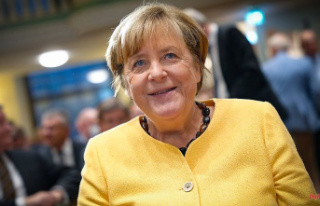After fierce criticism of the planned gas levy, the project is on the verge of being canceled. So far, however, the governing coalition has not been able to agree on an alternative. Time is running out.
Despite nightly negotiations, the traffic light coalition has not yet agreed on an immediate end to the gas surcharge from October. The replacement financing has not yet been clarified, said coalition and government representatives. Accordingly, the associated amendment to the Energy Security Act (Ensig) will not initially be decided in the Federal Cabinet. The Ministry of Economic Affairs has not yet wanted to comment.
Economics Minister Robert Habeck originally only wanted to exclude "free riders" from the gas levy - i.e. profitable companies that don't need any support at all. The Energy Security Act should be changed for this purpose. However, more and more top politicians in the traffic light coalition had recently completely moved away from the gas levy. The energy and economic committees of the Bundestag, which wanted to vote in parallel for the immediate stop, did not initially decide. They were informed that the cabinet would be discussed again "at short notice".
According to the current legal situation, the surcharge would be calculated from October and could then mean significant price increases for all gas customers. Most recently, almost all leading politicians in the traffic light coalition spoke out in favor of stopping the levy, which would have charged every customer around 2.4 cents per kilowatt hour from October.
Finance Minister Christian Lindner had also moved away from the project and instead called for a gas price brake. The background is that numerous gas customers are now receiving invoices and have to make significantly higher advance payments. In addition, the economy warns of an overload. The ailing gas importers should actually be supported with the surcharge and targeted income of over 35 billion euros by spring 2024.
They got into trouble because of the halt to Russian gas supplies, as they have to buy expensive replacements and cannot pass on the costs directly in existing contracts. With the nationalization of the largest importer Uniper planned for the end of the year, this would no longer be necessary in this way. However, a solution would have to be found for the transitional period, as the levy is part of the existing stabilization concept.












